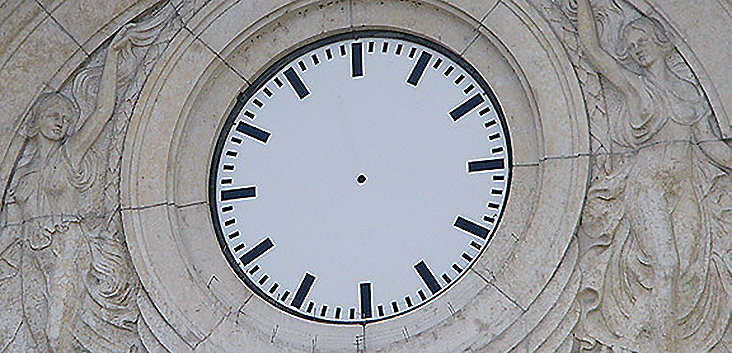Living on the edge of time – PhD candidate Anna McFarlane of the University of St. Andrews suggests a utopian novel
Between the immanent and transcendent – Florian Zemmin, PhD candidate from the University of Bern, tells you whether we live in secular or post-secular times
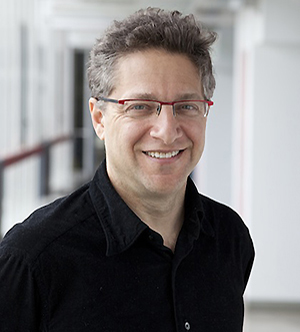 A talk on the history of time from the absolute through relativity, on clocks and other mechanisms of control, and the way these ideas were worked out and transformed in Peter Galison’s collaboration with artist William Kentridge for the installation The Refusal of Time at dOCUMENTA (13).
A talk on the history of time from the absolute through relativity, on clocks and other mechanisms of control, and the way these ideas were worked out and transformed in Peter Galison’s collaboration with artist William Kentridge for the installation The Refusal of Time at dOCUMENTA (13).
Clarissa Lee calls attention to a Summer School on “Physics and Philosophy of Time” to take place in Munich, 23-28 July 2013: CfP
The Posthuman
Rosi Braidotti
“This is an exciting and important text, full of intellectual brilliance and insight. It will make a major mark.”
Henrietta L. Moore, University of Cambridge
The Posthuman offers both an introduction and major contribution to contemporary debates on the posthuman. Digital ‘second life’, genetically modified food, advanced prosthetics, robotics and reproductive technologies are familiar facets of our globally linked and technologically mediated societies. This has blurred the traditional distinction between the human and its others, exposing the non-naturalistic structure of the human. The Posthuman explores the extent to which a post-humanist move displaces the traditional humanistic unity of the subject. Rather than perceiving this situation as a loss of cognitive and moral self-mastery, Braidotti argues that the posthuman helps us make sense of our flexible and multiple identities.
Publishing April 2013
9780745641584 paperback £14.99/€19.90
Review by Stefan Herbrechter in Culture Machine: link
In Spite of Our Times: Critical Theory as the Untimely
Rosi Braidotti
This lecture addresses the paradox of critical theory in a global era, namely how to resist the injustices and violence of the present, while engaging productively with the conditions of the present, so as to transform them. The paper explores the multiple temporal facets of critical theory by building an argument for the transformative politics of affirmation. The context in which this case is made is the so-called ‘post-human’ turn in contemporary theory. The paper explores this context in the light of three main considerations: firstly, the shifting perception and understanding of ‘the human’ in the life sciences. Secondly, the effects of globalization as a system that functions by instilling processes of ‘timeless time’ and perverse, multiple time-lines into our social life. Thirdly, the impact of wars and conflicts in contemporary governmentality and the new forms of discrimination they engender on a planetary scale. Last but not least, the lecture examines the implications of this complex web of intersecting temporalities for progressive, affirmative politics in general and feminist issues in particular.
From Contemporary to Non-Contemporary: Transforming Narratives about Indian Statehood in Early Modern Discourse
Antje Flüchter
The modern discourse about India is highly influenced by Georg Wilhelm Friedrich Hegel. For Hegel human history began in the East. However, the East had not evolved since and thus it remained rather pre-historic or at best the childhood of humankind. This Hegelian concept became a central aspect of the master narrative of the Rise of the West, which developed parallel with the rise of British colonialism in India. Emanating from the idea of their own dominance, Europeans shifted their understanding of the world order from a hierarchy of civilisations to a temporal or chronological sequence (Achim Landwehr). Consequently, the West was mobile, developed and modern, whereas India was static, undeveloped and medieval. Coming from such a conceptualising of history, Indian phenomena can never be contemporary to European ones, but are always the non-contemporary variation to the contemporary (Western) norm. At this point, Dipesh Chakrabarty and other postcolonial scholars applied their criticism that the West put India in the waiting room of history. Opposing such interpretations, a growing number of contemporary scholars have claimed that Indian rulers were more modern than their European contemporaries (e.g. concerning the institution of a standing army or religious tolerance). On the one hand these interpretations have posed important questions on Western master narratives. On the other hand, however, the authors tend to construct another master narrative, namely one about Eastern dominance. Furthermore, it could be criticised, that they used an anachronism, because they transferred concepts from our period (like tolerance) to the past. Anachronism in historical studies has been perceived as a capital crime (Lucien Febvre). However, is it the same, if one labels the Mughal ruler Akbar tolerant as if you call Rabelais an atheist? Considerations like this lead us into recent discussions about periodization or the constructing of time and teleologies. More
Post- and Proto-: Constructions of the Future
Stefan Herbrechter
“Post-age”, or the age of the “post-” is probably best understood as the increasing cultural awareness of untimeliness. As such, the feeling of being “post-this” or post-that” is of course nothing new. It is part of the normal process of making sense of time, of narrativisation, historicisation, of “transforming time” and “timing transformations” – or, of constructing (a) future(s). The post is supposed to provide an “articulation” between a reconstructed past and an anticipated future. However, there is a much more complex and ambivalent logic at work in any “posting” process: the desire of situating oneself “after” (superseding something or someone) and at the same time “before” (in the sense of “being at the forefront of”, “following on from”) ends up subverting the neat chronological order which it presupposes. Philosophical postmodernism is probably the movement which has “played” out most rigorously notions like
belatedness, deja-vu, avant-garde, re-present-ation, (r)event, haunting, aporia, apocalypse, heterology, sequelisation, utopia, prolepsis and so on. This talk will attempt to provide an overview of recent critical investigations of causality, chronology, teleology and metaphysics. It will perform a critical (re)reading of the “post-” and some of its implications for “our” present and “future”; and it will do so in particular in the light of the latest, maybe last “post-” – the “posthuman” and “posthumanism”. More specifically, it will ask, “how did ‘we’ become post-?” and “what is the future of the post-?” by analysing the dialectic between “proto-” and “post-”, or between the future as to-come and as “always already” past.
Multiple Western modernities. Lost and hidden concepts of time and history in early modern Europe.
Michael Kempe
Today it seems to be not wise any longer – at least, many people think so – to ground our theories and political practices in notions of progress and linear historicity formed in Western modernity to meet the challenges of the 21st century. But before searching for alternative conceptions of time and temporalities to move forward without jumping onto the fast train of modernization we should check the correctness of our understanding of Western modernity to find out if there might be some alternatives within this concept of modernity itself. In other words: it seems to be worth to examine if some of the shortcomings of modernity might base, at the end, on the shortcoming of our idea and interpretation of modernity. Thus, it might useful to question our understanding of Western modernity. Therefore, I would like to highlight some of the so far neglected, lost or hidden reflections of time, temporality, history and change within the train of thoughts in early modern European thinking to widen our narrowed understanding of the Western tradition of modernity. To avoid any misunderstandings: this lecture does not imply an apology of Western modernity. But instead, it offers an historical differentiated picture of early modern discourse about time, temporality and transformations. This could be a first step to disclose possibly undiscovered potentials and possibilities with the tradition of early modern thinking to escape modernist framings – in the sense of a reduced interpretation of such a frame. In this way I like to start to show that it would be a shortcoming to reduce early modern thinking about time and temporality to a mere model of linear progress. Instead it can be observed, for instance, even in a concept of sacral history an entanglement of different timelines, composed of a combination of linearity (time’s arrow) and cyclicity (time’s cycle). More
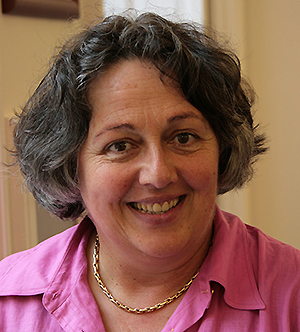 Rosi Braidotti (B.A. Hons. Australian National University, 1978; PhD Cum Laude, Université de Paris, Panthéon-Sorbonne, 1981; Senior Fulbright Scholar, 1994; Honorary Degree ‘Philosophiae Doctrix Honoris Causa’, University of Helsinki, 2007; Knight in the Order of the Netherlands Lion, 2005; Honorary Fellow of the Australian Academy of the Humanities, 2009) is Distinguished University Professor and founding Director of the Centre for the Humanities at Utrecht University. She was the founding professor of Gender Studies in the Humanities at Utrecht (1988-2005) and the first scientific director of the Netherlands Research School of Women’s Studies. In 2005–2006, she was the Leverhulme Trust, Visiting Professorship in the Law School of Birckbeck College, University of London. In 2001–2003, she held the Jean Monnet Visiting Chair at the Robert Schuman Centre for Advanced Studies of the European Institute in Florence. In 1994-1995 she was a fellow in the School of Social Science at the Institute for Advanced Study at Princeton. More
Rosi Braidotti (B.A. Hons. Australian National University, 1978; PhD Cum Laude, Université de Paris, Panthéon-Sorbonne, 1981; Senior Fulbright Scholar, 1994; Honorary Degree ‘Philosophiae Doctrix Honoris Causa’, University of Helsinki, 2007; Knight in the Order of the Netherlands Lion, 2005; Honorary Fellow of the Australian Academy of the Humanities, 2009) is Distinguished University Professor and founding Director of the Centre for the Humanities at Utrecht University. She was the founding professor of Gender Studies in the Humanities at Utrecht (1988-2005) and the first scientific director of the Netherlands Research School of Women’s Studies. In 2005–2006, she was the Leverhulme Trust, Visiting Professorship in the Law School of Birckbeck College, University of London. In 2001–2003, she held the Jean Monnet Visiting Chair at the Robert Schuman Centre for Advanced Studies of the European Institute in Florence. In 1994-1995 she was a fellow in the School of Social Science at the Institute for Advanced Study at Princeton. More
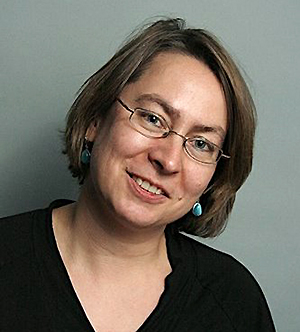 PD Dr. Antje Flüchter is historian of Early Modern European History by training and an Independent Research Group Leader at the Cluster of Excellence Asia and Europe in a Global Context in Heidelberg since 2008. Her project (consisting of herself and two PhD students) has a focus on the circulation and negotiation of knowledge between India and Europe in the process of state building. A new project (Jesuits in Asia and Europe – Transcultural Christianity and the Narratives of Christian Orthodoxy) is starting soon. She earned her doctoral degree in 2002 at the University of Münster (Celibacy between Norm and Deviant Behaviour. Church Politics and everyday life in Jülich and Berg in the 16th and 17th century) and her Habilitation in 2012 at the University of Heidelberg (From Diversity to a Single Truth: Images of Indian Statehood in Early Modern German Discourse, 1500-1700). Between 1997 and 2008 she was Assistant Professor at the Department of Early Modern History, University of Münster. Her fields of interest are transcultural studies, history of religion, cultural history of politics, confessionalism and gender history. More
PD Dr. Antje Flüchter is historian of Early Modern European History by training and an Independent Research Group Leader at the Cluster of Excellence Asia and Europe in a Global Context in Heidelberg since 2008. Her project (consisting of herself and two PhD students) has a focus on the circulation and negotiation of knowledge between India and Europe in the process of state building. A new project (Jesuits in Asia and Europe – Transcultural Christianity and the Narratives of Christian Orthodoxy) is starting soon. She earned her doctoral degree in 2002 at the University of Münster (Celibacy between Norm and Deviant Behaviour. Church Politics and everyday life in Jülich and Berg in the 16th and 17th century) and her Habilitation in 2012 at the University of Heidelberg (From Diversity to a Single Truth: Images of Indian Statehood in Early Modern German Discourse, 1500-1700). Between 1997 and 2008 she was Assistant Professor at the Department of Early Modern History, University of Münster. Her fields of interest are transcultural studies, history of religion, cultural history of politics, confessionalism and gender history. More
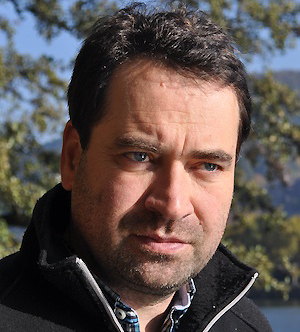 PD Dr. Stefan Herbrechter is Reader in Cultural Theory at the Coventry School of Art and Design, Coventry University. He studied English and French at Heidelberg University, and English literature at the Centre for Critical and Cultural Theory, Cardiff University. He is series editor of Critical Posthumanisms (Rodopi) and author and editor of a number of books on a variety of aspects in English and comparative literature, critical & cultural theory, continental philosophy, cultural and media studies. He is also a translator of cultural theory/philosophy from French into English (Derrida, Cixous, Stiegler). For more details please see http://stefanherbrechter.com.
PD Dr. Stefan Herbrechter is Reader in Cultural Theory at the Coventry School of Art and Design, Coventry University. He studied English and French at Heidelberg University, and English literature at the Centre for Critical and Cultural Theory, Cardiff University. He is series editor of Critical Posthumanisms (Rodopi) and author and editor of a number of books on a variety of aspects in English and comparative literature, critical & cultural theory, continental philosophy, cultural and media studies. He is also a translator of cultural theory/philosophy from French into English (Derrida, Cixous, Stiegler). For more details please see http://stefanherbrechter.com.
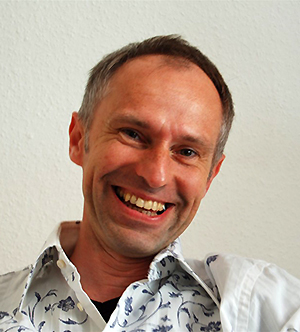 PD Dr. Michael Kempe is the Director of the Leibniz Research Center and the Leibniz-Archiv in Hannover and teaches early modern history at the University of Konstanz. He gained his PhD in 2000 with a book on early Enlightened theories of the biblical deluge and in 2009 his Habilitation with a book about the history of piracy and international law (1500-1900). He has teaching experiences, including interim chairs, at the Universities of Konstanz, St. Gallen, Frankfurt/Main, Heidelberg, Lecce (Italy), Trier and Berne. Between 2002 and 2006 he was a fellow at the Max-Planck-Institute for European legal history in Frankfurt/Main; and between 2006 and 2009 he worked as a assistant at the University of St. Gallen where he also co-founded and coordinated the new interdisciplinary doctorial program “Organization and Culture”. Until October 2011 he acted as the scientific coordinator of the Center for Excellence “Cultural Foundations of Integration” at the University of Konstanz and, together with Jürgen Osterhammel, as co-leader of the interdisciplinary PhD program “Cultures of Time”. His research and teaching cover a wide range of topics in early modern international and global history from European expansion and global history, history of European Enlightenment and intellectual history to environmental history, history of science and historiography of history. Concerning the topic of the Berne Winter School 2013 “Timing TransFormations”, he can offer in particular an expertise in the history of apocalyptic and catastrophist thinking, in early modern concepts of time, chance and contingency as well as in theories of the fall and decline of empires (e.g. theories of the “the falls of Rome”). More
PD Dr. Michael Kempe is the Director of the Leibniz Research Center and the Leibniz-Archiv in Hannover and teaches early modern history at the University of Konstanz. He gained his PhD in 2000 with a book on early Enlightened theories of the biblical deluge and in 2009 his Habilitation with a book about the history of piracy and international law (1500-1900). He has teaching experiences, including interim chairs, at the Universities of Konstanz, St. Gallen, Frankfurt/Main, Heidelberg, Lecce (Italy), Trier and Berne. Between 2002 and 2006 he was a fellow at the Max-Planck-Institute for European legal history in Frankfurt/Main; and between 2006 and 2009 he worked as a assistant at the University of St. Gallen where he also co-founded and coordinated the new interdisciplinary doctorial program “Organization and Culture”. Until October 2011 he acted as the scientific coordinator of the Center for Excellence “Cultural Foundations of Integration” at the University of Konstanz and, together with Jürgen Osterhammel, as co-leader of the interdisciplinary PhD program “Cultures of Time”. His research and teaching cover a wide range of topics in early modern international and global history from European expansion and global history, history of European Enlightenment and intellectual history to environmental history, history of science and historiography of history. Concerning the topic of the Berne Winter School 2013 “Timing TransFormations”, he can offer in particular an expertise in the history of apocalyptic and catastrophist thinking, in early modern concepts of time, chance and contingency as well as in theories of the fall and decline of empires (e.g. theories of the “the falls of Rome”). More
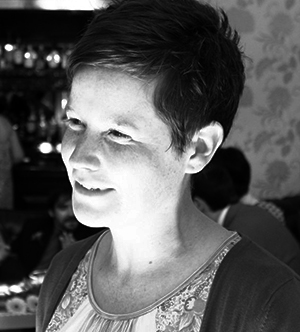 Dr. Michelle Bastian is currently a Research Fellow at the Centre for Research in Socio-Cultural Change at the University of Manchester and from February 2013 will be a Chancellor’s Fellow at the University of Edinburgh, in the Edinburgh College of Art. She is an interdisciplinary scholar whose approach draws on continental philosophy, feminist philosophy, anthropology and sociology. Her work focuses on the role of varying conceptions of time in social practices of inclusion and exclusion. This includes work on human communities, particularly feminist challenges to traditional notions of community, as well as a focus on ‘more-than-human’ communities. She is particularly interested in exploring how concepts of time and community are shifting in the context of climate change, resource depletion and mass extinctions. Currently, she is working on a variety of Arts and Humanities Research Council funded projects.
Dr. Michelle Bastian is currently a Research Fellow at the Centre for Research in Socio-Cultural Change at the University of Manchester and from February 2013 will be a Chancellor’s Fellow at the University of Edinburgh, in the Edinburgh College of Art. She is an interdisciplinary scholar whose approach draws on continental philosophy, feminist philosophy, anthropology and sociology. Her work focuses on the role of varying conceptions of time in social practices of inclusion and exclusion. This includes work on human communities, particularly feminist challenges to traditional notions of community, as well as a focus on ‘more-than-human’ communities. She is particularly interested in exploring how concepts of time and community are shifting in the context of climate change, resource depletion and mass extinctions. Currently, she is working on a variety of Arts and Humanities Research Council funded projects.
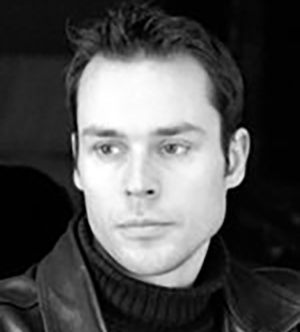 Dr. des. Friedrich K. Krämer studied Philosophy and Musicology at the University of Hamburg as well as Choir Conducting at the Hamburg University of Music and Theatre. He graduated as a Magister Artium with a thesis on the relation between time and temporal consciousness in Kant’s Critique of Pure Reason. Following an employment as Scientific Assistant at the Musicology Department of the University of Heidelberg where he worked for the German Research Foundation (DFG) project Motet Database (14th and 15th Century), he joined the graduate program (Pro*Doc) Human Life funded by the Swiss National Science Foundation (SNF). In 2012 he finished his PhD (Philosophy) at the University of Berne with a dissertation thesis on Time and Personal Identity. His research interests include Philosophy of Language, Metaphysics, Logic and Meta-Philosophy.
Dr. des. Friedrich K. Krämer studied Philosophy and Musicology at the University of Hamburg as well as Choir Conducting at the Hamburg University of Music and Theatre. He graduated as a Magister Artium with a thesis on the relation between time and temporal consciousness in Kant’s Critique of Pure Reason. Following an employment as Scientific Assistant at the Musicology Department of the University of Heidelberg where he worked for the German Research Foundation (DFG) project Motet Database (14th and 15th Century), he joined the graduate program (Pro*Doc) Human Life funded by the Swiss National Science Foundation (SNF). In 2012 he finished his PhD (Philosophy) at the University of Berne with a dissertation thesis on Time and Personal Identity. His research interests include Philosophy of Language, Metaphysics, Logic and Meta-Philosophy.
Temporalities and notions of progress and innovation formed in Western modernity have been instrumentalized to structure developments and ordering things. But past and present transformations are too complex and ambivalent to be adequately explained by monocausal and linear narratives of change. In the course of reflecting time and timing, the key concepts of modernist and economic notions of linear historicity as well as a strict sequentiality of stasis and change have been questioned. The modern conception of History has become just one possible manifestation within a plurality of histories conditioned by socio-cultural particularities. We are no longer interested only in the history of timetables, calendars, time markers or clocks – taking and making linear time and space as human universals – but in post-isms, pre-isms and ana-chronisms, react-ivations and revivals, devolutions, constant flows and nonlinear dynamics – in short, in timing trans/formations in the era of globalization, bio- and necropolitics and asymmetrical power relations. The Winter School 2013 analyses, discusses and challenges both modernist and postmodernist epistemologies as well as scientific paradigms of development and change from a historical, sociological, cultural and philosophical perspective.
Invited guests and the focus of their lecture
Prof. Dr. Rosi Braidotti (Philosophy, University of Utrecht)
Biopower, Necropolitics, Anthropocene, technology and human evolution
PD Dr. Antje Flüchter (History, University of Heidelberg)
Pre-modern and modern European-Indian encounter and perception, transformations of knowledge archives, non-linearity, modern narratives of linearity
PD Dr. Stefan Herbrechter (Cultural Theory, University of Coventry)
Postisms, postmodern theory, critical posthumanism, constructions of the future
PD Dr. Michael Kempe (History, Leibniz-Forschungsstelle Hannover)
Normative timing, spirality of time, possible and parallel worlds, chance, apocalypse, fall and decline, allochrony and repetition of time
When: 10 –15 February 2013
Where: Schloss Münchenwiler near Berne, Switzerland
Languages: English (main), German, French
ECTS: 6 | Costs: 500.- Swiss francs (travel and accommodation [double room] covered by organizer)
Application deadline: 20 October 2012


